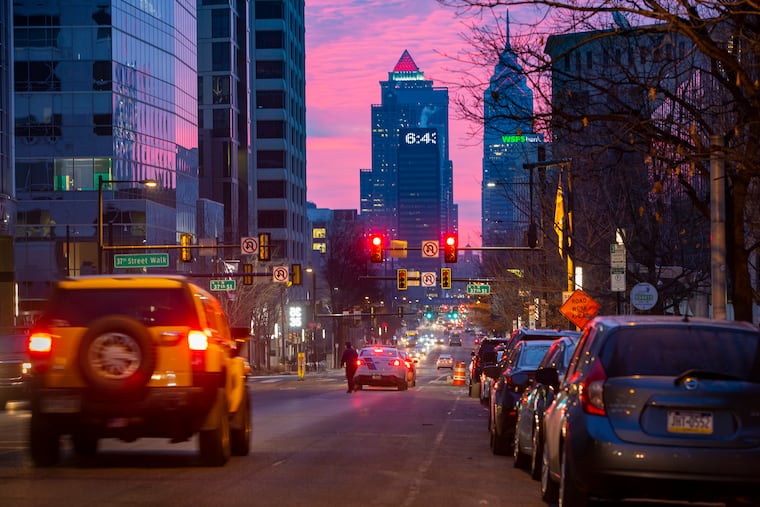Philly’s pandemic budget hole is big compared with other cities
Philadelphia's reliance on wage taxes made it more vulnerable than other cities, according to an analysis by The Pew Charitable Trusts.

The budget hole that Philadelphia had to fill last year as it approved its first budget amid the coronavirus pandemic was relatively large compared with other cities, according to an analysis by the Pew Charitable Trusts.
In a comparison of 13 large cities, Philadelphia’s $750 million shortfall last year was 14.7% of the city’s previous budget — second only to Detroit, which had a shortfall of 17%.
Philadelphia stood out in part for its reliance on the wage-tax revenue, which is more vulnerable during economic downturns than property taxes. Boston relies heavily on property taxes, for example, and had a shortfall for fiscal year 2021 that was only 1.9% of its fiscal year 2020 expenditures, Pew found.
But even with help from the latest federal stimulus package and vaccinations progressing, cities could still face ongoing revenue loss due to the changing nature of work, said Larry Eichel, a senior adviser with the Pew Charitable Trusts’ Philadelphia research and policy initiative.
» READ MORE: The pandemic took a big bite out of Philly’s tax base. What happens if suburbanites keep working from home?
“This could certainly impact wage-tax revenue in Philadelphia if more suburbanites work from home rather than move into the city,” Eichel said. “It could reduce the value of commercial real estate in a lot of cities and thus the property taxes they pay.”
The Pew analysis, released Tuesday, comes as Mayor Jim Kenney prepares to deliver his second pandemic-era budget proposal to City Council on April 15. The city must fill a $450 million budget hole for the fiscal year that begins July 1, but officials said this month that the latest federal stimulus package will help to avoid painful cuts.
Finance Director Rob Dubow said the proposed budget will be “much less painful than we were looking at” thanks to the stimulus. But officials have declined to share specifics. Kenney’s budget address, typically delivered the first week of March, was delayed this year in anticipation of the stimulus package.
» READ MORE: Do you still have to pay the Philly wage tax if you’re working from home in suburbs due to coronavirus?
Despite receiving $1.4 billion in stimulus money — half of which will be available this spring — budget officials have warned that the financial impact of the pandemic on Philadelphia’s budget could last for years. The city spent money from its reserves and rainy day fund to fill the budget hole in the current fiscal year. That step not only left the city without a savings cushion for the coming budget cycle, but also made it critical for the city to focus on rebuilding those reserves after the pandemic.
Other cities also spent reserves, according to Pew’s analysis. New York, for example, used reserves to fill one-third of an $8.3 billion shortfall that accounted for 8.5% of its budget.
Eichel said that although the budget shortfalls varied widely among cities, several are left without reserves as they plan for the next budget cycle.
“They aren’t able to tap the reserves, the overall level of economic uncertainty remains high, and there are issues beyond this year which again are very hard to anticipate,” he said.